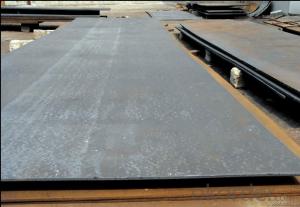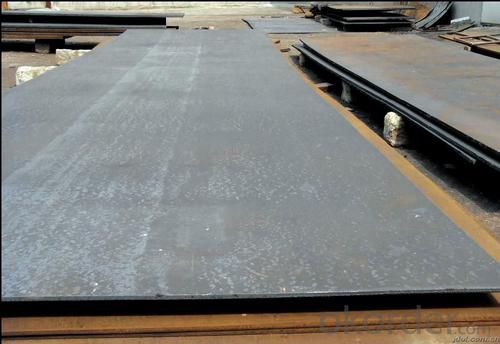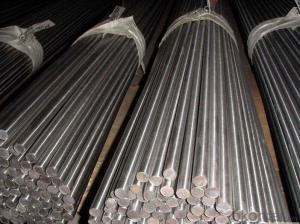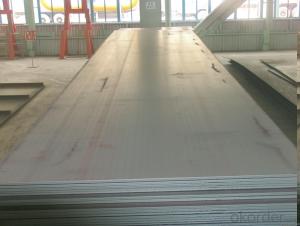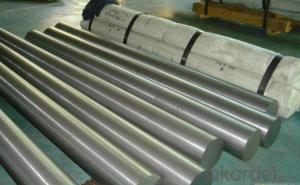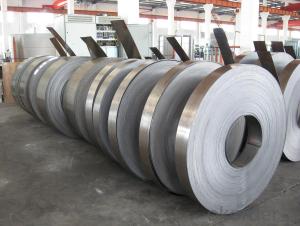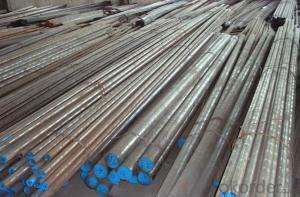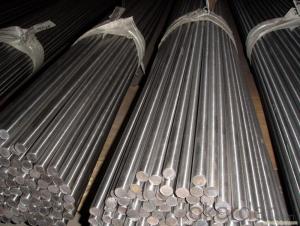Special Steel DIN 55Cr3 Spring Steel Plate
- Loading Port:
- China main port
- Payment Terms:
- TT OR LC
- Min Order Qty:
- 30 m.t.
- Supply Capability:
- 10000 m.t./month
OKorder Service Pledge
OKorder Financial Service
You Might Also Like
Specification
Product information:
steel grade | chemical composition(%) | ||||
C | Si | Mn | Cr | Others | |
65 | 0.62~0.70 | 0.17~0.37 | 0.50~0.80 | ≤0.25 | |
70 | 0.62~0.75 | 0.50~0.80 | ≤0.25 | ||
85 | 0.82~0.90 | 0.50~0.80 | ≤0.25 | ||
65Mn | 0.62~0.70 | 0.90~1.20 | ≤0.25 | ||
55Si2Mn | 0.52~0.60 | 1.50 ~2.00 | 0.60~0.90 | ≤0.35 | B 0.0005~0.0040 |
55Si2MnB | 0.52~0.60 | 0.60~0.90 | ≤0.35 | ||
60Si2MnA | 0.56~0.64 | 0.60~0.90 | ≤0.35 | ||
55SiMnVB | 0.52~0.60 | 0.70~1.00 | 1.00~1.30 | ≤0.35 | V 0.08~0.16 B 0.0005~0.0035 |
60Si2MnA | 0.56~0.64 | 1.60~2.00 | 0.60~0.90 | ≤0.35 | |
60Si2CrA | 0.56~0.64 | 1.40~1.80 | 0.40~0.70 | 0.70~1.00 | |
60Sii2CrVA | 0.56~0.64 | 0.40~0.70 | 0.90~1.20 | V 0.10~0.20 | |
55CrMnA | 0.52~0.60 | 0.17~0.37 | 0.65~0.95 | 0.65~0.95 | |
60CrMnA | 0.56~0.64 | 0.70~1.00 | 0.70~1.00 | ||
60CrMnMoA | 0.56~0.64 | 0.70~1.00 | 0.70~0.90 | Mo 0.25~0.35 | |
50CrVA | 0.46~0.54 | 0.50~0.80 | 0.80~1.10 | V 0.10~0.20 | |
60CrMnBA | 0.56~0.64 | 0.70~1.00 | 0.70~1.00 | B 0.0005~0.0040 | |
30W4Cr2VA | 0.26~0.34 | ≤0.40 | 2.00~2.50 | V 0.50~0.80 | |
Product Show:
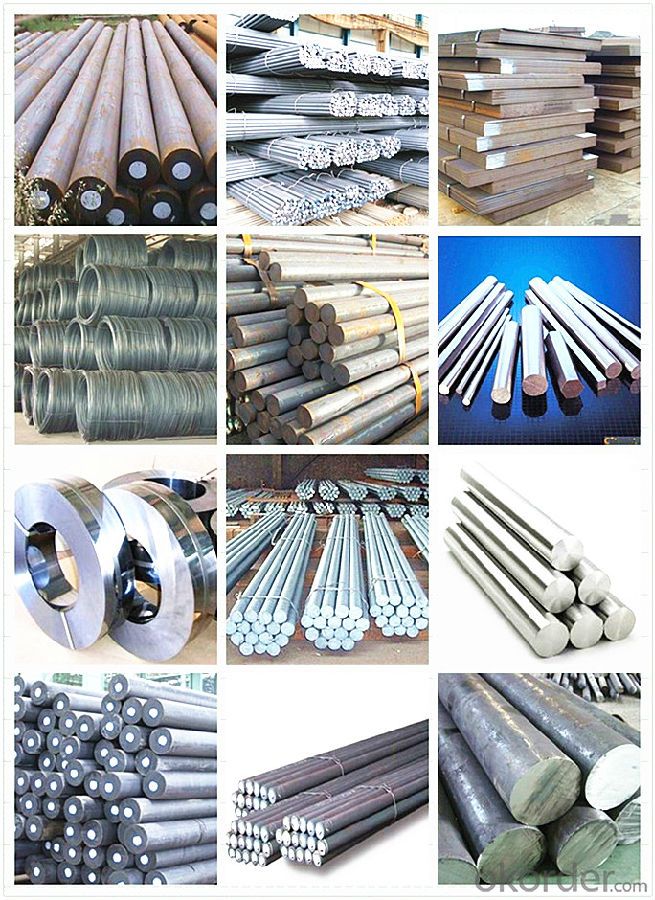
Workshop Show:
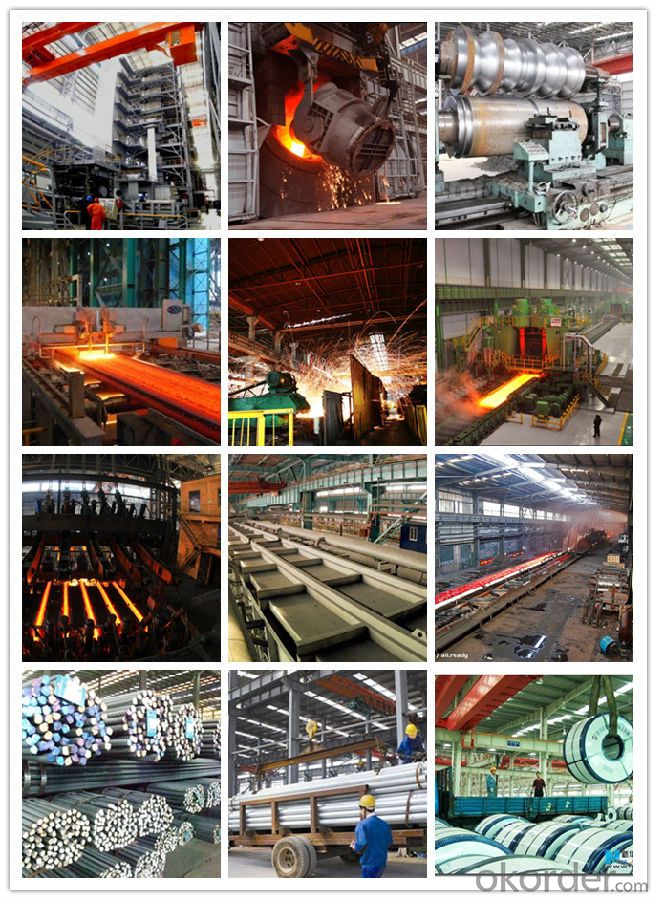
Shipping
1. FedEx/DHL/UPS/TNT for samples, Door-to-Door;
2. By Air or by Sea for batch goods, for FCL; Airport/ Port receiving;
3. Customers specifying freight forwarders or negotiable shipping methods!
Delivery Time: 3-7 days for samples; 5-25 days for batch goods.
Payment Terms
1.Payment: T/T, L/C, Western Union, MoneyGram,PayPal; 30% deposits; 70% balance before delivery.
2.MOQ: 1pcs
3.Warranty : 3 years
4.Package Informations: 1) EXPORT, In 20 feet (GW 25 ton) or 40 feet Container (GW 25 ton)
2)as customer's requirement
Why choose us?
(1) The leading exporter in China special steel industry.
(2) Large stocks for various sizes, fast delivery date.
(3) Good business relationship with China famous factories.
(4) More than 7 years steel exporting experience.
(5) Good after-sales service guarantee.
- Q: What are the different cutting tools used for special steel?
- There are several different cutting tools that are commonly used for special steel applications. These tools are specifically designed to handle the unique properties and characteristics of special steel, which often requires more precise and specialized cutting techniques. Some of the most commonly used cutting tools for special steel include: 1. Carbide tipped saw blades: These saw blades have carbide teeth, which are extremely hard and durable. They can cut through special steel with ease, providing clean and accurate cuts. 2. High-speed steel (HSS) cutting tools: HSS cutting tools are made from a type of tool steel that can withstand high temperatures and maintain their hardness. These tools are commonly used for drilling, milling, and turning operations on special steel. 3. Diamond cutting tools: Diamond is one of the hardest materials known to man, making it ideal for cutting through tough materials like special steel. Diamond cutting tools, such as diamond-coated saw blades or grinding wheels, are commonly used in special steel applications. 4. Waterjet cutting machines: Waterjet cutting machines use a high-pressure stream of water mixed with abrasive particles to cut through special steel. This method is particularly suitable for complex shapes and intricate designs. 5. Plasma cutting machines: Plasma cutting machines use a high-velocity jet of ionized gas to cut through special steel. This method is often used for cutting thick sections of special steel quickly and efficiently. 6. Laser cutting machines: Laser cutting machines use a highly focused laser beam to cut through special steel. This method offers high precision and can be used to cut complex shapes and patterns. It is important to choose the appropriate cutting tool based on the specific requirements of the special steel being worked with, as well as the desired cutting method and application. Consulting with a specialist or referring to the manufacturer's recommendations can help ensure the best cutting tool is selected for the job.
- Q: How does special steel contribute to the construction machinery industry?
- Special steel contributes to the construction machinery industry by providing high strength and durability to the equipment. This type of steel is designed to withstand extreme conditions, such as heavy loads, vibrations, and harsh environments. It enhances the performance and lifespan of construction machinery, allowing for efficient and reliable operation. Additionally, special steel's unique properties enable the construction of lighter and more robust equipment, leading to improved fuel efficiency and cost-effectiveness.
- Q: Is special steel magnetic?
- Certainly, special steel possesses the ability to exhibit magnetism. The magnetism displayed by steel relies upon its composition and the inclusion of specific elements, like iron, nickel, and cobalt. Special steels that incorporate these magnetic elements are capable of showcasing magnetic properties. Nonetheless, it is important to note that not all forms of steel possess magnetism. For instance, certain stainless steels possess elevated levels of non-magnetic elements, such as chromium, which diminish their magnetic properties. Consequently, whether a particular kind of special steel possesses magnetism or not hinges upon its composition.
- Q: What is the role of cobalt in special steel?
- Cobalt plays a crucial role in special steel due to its unique properties and characteristics. It acts as a key alloying element in the production of high-performance steel alloys, especially those used in demanding applications where strength, hardness, and heat resistance are vital. One of the main roles of cobalt in special steel is to enhance its overall strength and toughness. Cobalt forms a solid solution with iron, resulting in a fine-grained microstructure that improves the steel's mechanical properties. This leads to increased hardness, wear resistance, and the ability to withstand high temperatures and harsh environments. Additionally, cobalt improves the steel's resistance to corrosion and oxidation, making it suitable for applications in extreme conditions such as aerospace, oil and gas, and automotive industries. It also enhances the steel's magnetic properties, making it useful in electrical and electronic devices. Another important role of cobalt in special steel is its ability to promote the formation of stable carbides. The addition of cobalt helps in the precipitation and dispersion of carbides, which contributes to the steel's high-temperature strength and excellent retention of hardness at elevated temperatures. Furthermore, cobalt aids in the refinement of the steel's grain structure, resulting in improved machinability and surface finish. It also allows for better control over the steel's hardenability, which determines its ability to be heat-treated and achieve desired hardness levels. In summary, the role of cobalt in special steel is multifaceted and essential. It enhances the steel's strength, hardness, and toughness, improves its resistance to corrosion and oxidation, and enables it to withstand high temperatures. Cobalt also helps in refining the steel's microstructure, enhancing machinability, and allowing for precise control over its hardenability.
- Q: What are the main characteristics of corrosion-resistant steel?
- Stainless steel, also referred to as corrosion-resistant steel, possesses distinct qualities that render it highly resistant to corrosion. Below are the primary attributes of this type of steel: 1. Exceptional resistance to corrosion: An essential feature of corrosion-resistant steel is its capacity to withstand corrosion. This is achieved through the addition of specific alloying elements, namely chromium, nickel, and molybdenum, which generate a protective layer on the steel's surface. This layer, known as the passive layer, prevents the steel from coming into contact with corrosive substances, including moisture, chemicals, and acids. 2. Superb durability: Corrosion-resistant steel boasts remarkable durability, making it suitable for diverse applications in harsh environments. It can endure extreme temperatures, high humidity levels, and corrosive chemicals without deteriorating or compromising its structural integrity. This durability ensures that structures constructed from corrosion-resistant steel enjoy an extended service life, thereby reducing the need for frequent maintenance and replacements. 3. Aesthetically pleasing: In addition to its functionality, corrosion-resistant steel offers aesthetic appeal. Its smooth and polished surface bestows it with a visually pleasing appearance, rendering it a popular choice for architectural applications, interior design, and decorative elements. The ability to maintain its appearance over time, without rusting or discoloration, enhances its desirability in both industrial and residential settings. 4. High strength: Renowned for its strength and toughness, corrosion-resistant steel retains its mechanical properties even in corrosive environments. Consequently, it can withstand heavy loads, impacts, and other external forces, making it suitable for applications where structural integrity and safety are paramount. Examples include bridges, buildings, marine equipment, and automotive components. 5. Versatility: Corrosion-resistant steel exhibits versatility in terms of its applications. It can be easily fabricated, welded, machined, and formed into various shapes and sizes, thereby allowing for customization and adaptability. This versatility renders it ideal for a wide array of industries, encompassing construction, aerospace, automotive, chemical processing, and marine. 6. Hygienic properties: Another crucial characteristic of corrosion-resistant steel lies in its hygienic properties. Its non-porous surface impedes the growth of bacteria, making it suitable for applications in the food and beverage industry, healthcare facilities, and pharmaceutical manufacturing. Furthermore, its ease of cleaning and maintenance further bolsters its hygiene standards. In summary, corrosion-resistant steel seamlessly combines exceptional resistance to corrosion with durability, strength, versatility, and aesthetic appeal. These characteristics render it a dependable and cost-effective material for various industries, ensuring long-term performance and protection against the detrimental effects of corrosion.
- Q: How does special steel perform in low-temperature environments?
- Special steel performs exceptionally well in low-temperature environments. It exhibits excellent toughness, high strength, and remarkable resistance to brittle fracture, which makes it suitable for various applications in extreme cold conditions. Additionally, special steel maintains its mechanical properties even at sub-zero temperatures, ensuring reliability and durability in challenging environments.
- Q: How does special steel contribute to the textile industry?
- Special steel contributes to the textile industry by providing high-strength and durable components for textile machinery, such as looms, knitting machines, and textile processing equipment. The use of special steel in these machines ensures improved performance, precision, and longevity, thereby enhancing productivity and efficiency in textile manufacturing processes. Additionally, special steel's resistance to corrosion and wear helps maintain the quality and reliability of textile machinery, minimizing downtime and maintenance costs for manufacturers.
- Q: How does special steel comply with international standards?
- Special steel is a type of steel that is specifically designed and manufactured to possess exceptional properties and performance characteristics. When it comes to complying with international standards, special steel undergoes a rigorous process to ensure its quality and adherence to the established norms. Firstly, special steel production adheres to international standards through the selection of raw materials. The composition and quality of the raw materials used in the manufacturing process are carefully controlled and tested to meet the specifications outlined by international standards organizations. This ensures that the special steel produced is of the desired quality and possesses the required mechanical properties. Secondly, special steel manufacturers follow standardized production processes. These processes are designed in accordance with international guidelines and standards to guarantee consistency and traceability. Through the use of advanced technologies and quality control measures, special steel manufacturers can monitor and control every stage of production, from melting and casting to rolling and heat treatment. This ensures that the final product meets the required standards in terms of chemical composition, mechanical properties, and dimensional tolerances. Furthermore, special steel undergoes stringent testing and inspection procedures to validate its compliance with international standards. This includes various destructive and non-destructive testing methods such as ultrasonic testing, hardness testing, and microstructure analysis. These tests are conducted by certified laboratories and independent third-party agencies to ensure unbiased and accurate results. In addition, special steel manufacturers often have their production processes and quality management systems audited and certified by recognized bodies, such as ISO (International Organization for Standardization), to demonstrate their commitment to compliance with international standards. It is also worth mentioning that special steel manufacturers actively participate in international standardization committees, such as ASTM International and the International Organization for Standardization (ISO). By engaging in these committees, they can contribute to the development and revision of international standards, ensuring that their products remain up to date and in line with the latest industry requirements. In conclusion, special steel complies with international standards through careful selection of raw materials, adherence to standardized production processes, rigorous testing and inspection procedures, and active participation in international standardization committees. By following these measures, special steel manufacturers demonstrate their commitment to producing high-quality products that meet the stringent requirements of international standards.
- Q: What are the properties of magnetic steel?
- Magnetic steel possesses several properties that make it suitable for various applications. It exhibits ferromagnetism, meaning it can be magnetized and holds a magnetic field strongly. This property enables it to attract and repel other magnetic materials. Magnetic steel also has high permeability, allowing magnetic flux to pass through it easily. It has a high saturation magnetization, meaning it can hold a strong magnetic field. Furthermore, magnetic steel demonstrates excellent mechanical strength, durability, and corrosion resistance, making it ideal for use in industries such as electrical engineering, automotive, and construction.
- Q: How does special steel perform in high-temperature oxidation with sulfur-containing atmospheres?
- Special steel performs well in high-temperature oxidation with sulfur-containing atmospheres due to its enhanced resistance to sulfur attack. The alloying elements present in special steel, such as chromium, molybdenum, and nickel, provide excellent protection against sulfur-induced corrosion and oxidation. This makes special steel an ideal choice for applications where exposure to high temperatures and sulfur-containing atmospheres is a concern.
Send your message to us
Special Steel DIN 55Cr3 Spring Steel Plate
- Loading Port:
- China main port
- Payment Terms:
- TT OR LC
- Min Order Qty:
- 30 m.t.
- Supply Capability:
- 10000 m.t./month
OKorder Service Pledge
OKorder Financial Service
Similar products
Hot products
Hot Searches
Related keywords
